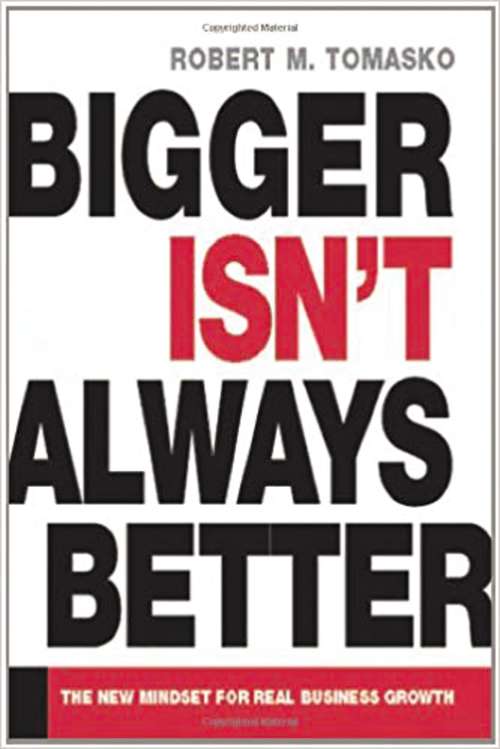
Bigger Isn't Always Better: The New Mindset For Real Business Growth
Business and economics
Synthetic audio, Automated braille
Summary
You want your business to grow. But don’t confuse growth with expansion. To be sure, increased size can be an important component (or fortuitous by-product) of business success, but companies that expand too much, too quickly, or too myopically may… soon find themselves too big for their britches. What, then, is real growth? Simply put, it’s progress, and it is based on moving the business beyond the self-imposed limits that have come to define and constrain it. Good “growers” know that true success is fueled by imagination, not by a stream of mergers, stock price manipulations, or clever accounting. These individuals share seven characteristics that enable them to foster real, sustainable growth. Bigger Isn’t Always Better reveals these traits, why they are effective, and how to apply them in your organization. The book shows how successful companies and growers: * Know where to look * Know what they want * Tell the truth * Create tension to generate forward movement * Win hearts and minds * Master momentum and bounce * Know when to let go, and share the wealth Distilling a decade of research and personal interviews on three continents, author Bob Tomasko illustrates the seven traits with examples from companies—large and small, well known and less so—that have profited through innovative strategies that focus on genuine growth opportunities instead of the appearance of growth. Profiles include: Darcy Winslow, who helped testosterone-fueled Nike grow by creating a range of products for women that opened a new and profitable market Chris Mottern of Peet’s Coffee, which carved a niche by slipstreaming around the wake created by Starbucks Roger Enrico, the Pepsi veteran who created The Pepsi Challenge and established Pepsi as the Coke of snack foods Bill Greenwood of Burlington Northern, which found a way to turn truckers, the railroad’s most difficult competitors, into its best customers Al Bru, who got health-conscious consumers to embrace Frito-Lay’s snack products by eliminating trans fats Carlos Gutierrez, who restored Kellogg to a growth path by eliminating its fixation on volume Bigger Isn’t Always Better also offers stunning examples of the failure of the Big-Is-Good philosophy, including the ill-fated Hewlett-Packard/Compaq merger and its highest-profile casualty, CEO Carly Fiorina. After years of cutbacks, growth is in again. But instead of assuming that an inflated business can dominate a market through sheer size or manufactured numbers, the new model shows how engaged growers use positive psychology to drive robust and sustainable growth. Combining real-life stories, thorough scientific research, and insightful analysis, Bigger Isn’t Always Better shows how your organization can move forward—without tripping over its own feet.